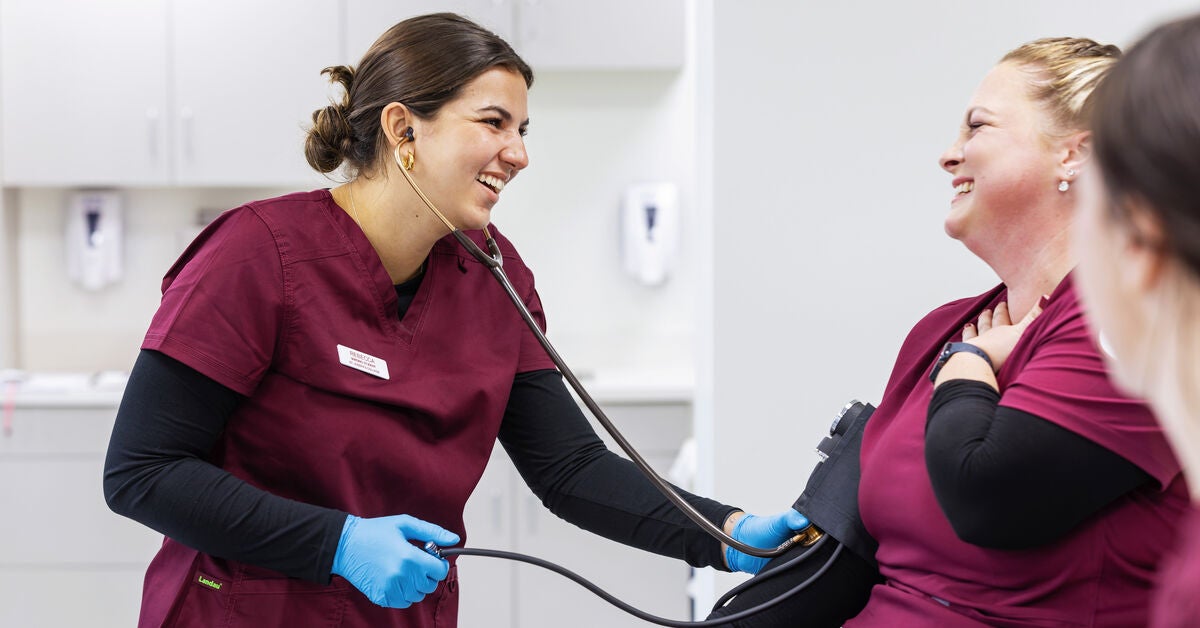EMT to RN: Your Guide to Becoming a Nurse
A career change from an emergency medical technician (EMT) to a Registered Nurse (RN) has many potential benefits. If you or someone you know is considering a switch from EMT to nurse, this blog aims to help guide the process.
Advantages of transitioning from EMT to RN include expanded job opportunities, better pay, and overall career advancement. Read on to learn more about the RN role and transferable skills from an EMT or paramedic background to nursing.
Role and Responsibilities of a Paramedic vs. RN
It is exciting to consider the knowledge and skills that can be leveraged on the path from EMT to nursing. There are key differences between EMTs and paramedics regarding training and scope of practice, but both roles share similarities with nursing and other health professions.
Paramedics and EMTs assess and treat patients in various settings when emergency medical care is required. They collaborate in team environments, frequently in pre-hospital settings when patient stabilization and life-saving medical interventions are needed. Nursing care differs from emergency medical services, but there are some similarities.
Registered nurses provide comprehensive nursing care to patients and families in various healthcare settings. Core RN responsibilities include:
- Patient assessment
- Nursing care planning
- Medication administration
- Monitoring and evaluation of health status
EMTs who want to pursue nursing as a second career need additional training and education, but possess the foundational skills required to succeed in nursing. Clinical skills and professional communication are major components of the RN role, along with patient education and documentation. Similarly, EMTs must assess patients and use critical thinking with medical skills and decision-making.
RN Job Outlook and Salary
Employment of nurses is projected to rise quicker than other occupations. Statistics from the U.S. Bureau of Labor Statistics (BLS) support this favorable job outlook with an anticipated 6% increase in RN employment over the decade from 2023 to 2033, making nursing one of the fastest-growing fields in the country.
The BLS also reported a 2023 median pay for RNs of $86,070 annually or $41.38 hourly, whereas the 2023 median salary for EMTs and paramedics was $44,780 annually or $21.53 hourly. Industries with the highest-paying RN roles include government (with a median RN salary of $99,840 annually) and hospitals (with a median RN salary of $88,430 annually). According to the BLS, the top 10% of RNs in 2023 made over $132,680 in wages.
Specialization in Nursing
With an RN license, there are many nursing specialty areas to choose from as you develop your future career. Nursing specialty certifications are available to those who complete their nursing education and demonstrate clinical competency in areas such as:
- Ambulatory care
- Medical-surgical nursing
- Pediatric or Gerontological nursing
- Cardiac-vascular nursing
- Psychiatric-mental health nursing
If you are still determining which specialty area interests you the most, you can begin your nursing career in one specialty area and change to another as you grow in your experience. Nursing school clinicals also offer a chance to gain exposure to different nursing specialties as you hone your nursing skills during these required student rotations in the field.
The Nursing Workforce Fact Sheet published by the American Association of Colleges of Nursing (AACN) reported that as of 2022, 71.7% of the U.S. nursing workforce had earned a baccalaureate degree or higher in their nursing education. The fact sheet also indicates that employers prefer BSN-prepared nurses over Associate Degree in Nursing (ADN) training.
Accelerated program options are available for EMTs who desire to earn a Bachelor of Science in Nursing (BSN) degree in less time than a traditional, four-year program.
Steps from EMT to Nurse with a BSN Degree
Accelerated BSN (ABSN) programs are designed for applicants who already hold a bachelor's degree in a non-nursing field, allowing them to leverage their prior education to efficiently earn a BSN degree. If you are an EMT and already have a bachelor’s degree in any field, you can become a BSN-prepared RN by taking the following steps.
1. Choose a Nursing Program
With a current bachelor’s degree, the quickest way to go from EMT to RN is to enroll in an ABSN program. These immersive programs can prepare you to thrive in your first nursing job when you graduate. Some ABSN programs offer 100% online coursework with the ability to complete required, in-person clinical hours in your local area.
2. Gather Needed Materials and Apply
Applications for nursing school are often accompanied by supporting documents such as academic transcripts from any previous education and letter(s) of recommendation. After choosing a nursing program, the next step to becoming a nurse is to gather these needed materials and submit your completed application to the nursing program of your choice.
3. Complete the ABSN Coursework, Campus Immersion(s), and Clinical Rotations
Didactic coursework prepares nursing students with the fundamental nursing education and skills that are practiced during hands-on campus immersions or simulation activities and mandatory clinical hours. A BSN degree is earned through the completion of these included components of an ABSN program.
4. Pass NCLEX and Obtain RN Licensure in Your State
Following graduation, candidates for nursing licensure must apply for and successfully pass the National Nursing Licensure Examination (NCLEX). A passing score on the NCLEX is one of the requirements for obtaining RN licensure in every state. Other requirements and documentation for RN licensure include:
- Completed application form and accompanying application fee
- Criminal background check and identity verification
- Proof of nursing education program completion
- Jurisprudence examination (in some states)
Although the process for obtaining RN licensure is similar in many states, application requirements vary by state. You must follow the application process outlined by the state nursing board or licensing agency in your state to obtain your RN license.
5. Start Your New Career as a Nurse
Your second career as a nurse is a major milestone to be celebrated. As a licensed RN, you can apply and interview for nursing employment opportunities. If you are ready to start your nursing career, now is an excellent time to find the right ABSN program for you.
Become a Nurse in 15 Months at Saint Joseph’s College of Maine
The hybrid ABSN program offered by Saint Joseph’s College of Maine is accredited by the Commission on Collegiate Nursing Education (CCNE) and includes exciting program features:
- 100% online coursework
- On-campus immersions with high and low-fidelity simulation
- First-time NCLEX pass rates over 90%
- No nursing experience required
For more information about Saint Joe’s Accelerated Bachelor of Science in Nursing, visit the program page and get your brochure today.



